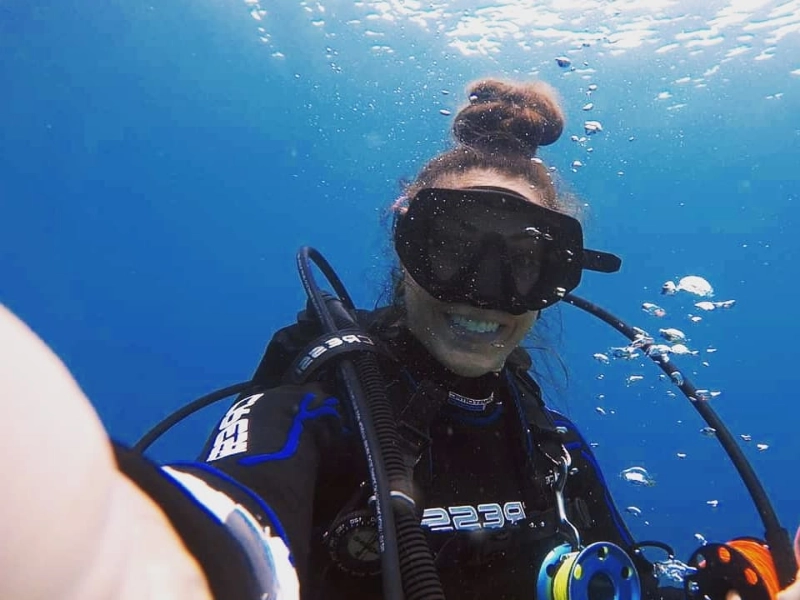Choosing the Right Dive Bag for Travel Protection of Your Equipment
A well-made backpack should be able to support the weight of your equipment and the strain of travel. Heavy-duty fabric, robust handles, and corrosion-proof zippers are among the considerations. A sturdy gear bag that offers simple access to belongings should meet your airline's size requirements. Convenient elements like mesh drains and additional accessory pockets should also be included.
Mesh Bags

Cushioned Sacks
 The protection you need to guarantee that your equipment arrives in the same condition that it left is provided by padded bags. These bags, sometimes referred to as Jiffy Bags, have a sturdy exterior paper with padding made of recycled fibres that cushions shock and shields contents from harm while in transit.
Larger bags with inside foam cushioning can accommodate multiple surfboards or twin tips, as well as equipment like mixers and speakers. Additionally, they feature smooth-running wheels that make it simple to roll fully loaded luggage to your next location.
Consider the manner in which you will transport your equipment, as well as the kinds of baggage limitations and difficulties that you may face. Imagine yourself travelling by bus, rail, bike, and barge, flying domestically or internationally, and staying in tented safari camps. When booking accommodations such as hotels, hostels, vacation apartments, and other lodging options during your trip, you also need to take into account the limitations on your luggage. After that, select a bag based on your needs. To make it more difficult for thieves to cut the straps and take your belongings, some bags even come equipped with anti-theft features like locking clips and straps reinforced with steel wires or Dyneema.
The protection you need to guarantee that your equipment arrives in the same condition that it left is provided by padded bags. These bags, sometimes referred to as Jiffy Bags, have a sturdy exterior paper with padding made of recycled fibres that cushions shock and shields contents from harm while in transit.
Larger bags with inside foam cushioning can accommodate multiple surfboards or twin tips, as well as equipment like mixers and speakers. Additionally, they feature smooth-running wheels that make it simple to roll fully loaded luggage to your next location.
Consider the manner in which you will transport your equipment, as well as the kinds of baggage limitations and difficulties that you may face. Imagine yourself travelling by bus, rail, bike, and barge, flying domestically or internationally, and staying in tented safari camps. When booking accommodations such as hotels, hostels, vacation apartments, and other lodging options during your trip, you also need to take into account the limitations on your luggage. After that, select a bag based on your needs. To make it more difficult for thieves to cut the straps and take your belongings, some bags even come equipped with anti-theft features like locking clips and straps reinforced with steel wires or Dyneema.
Empty Bags
 If you're going camping, hiking, or taking a day trip to the beach, you can keep additional clothes and equipment safe by putting them in a dry bag. These bags can also be used to hold cash and other essentials like passports. They may be cleaned after each use to stop mildew or mould growth, and they are lightweight and convenient to transport.
With its angled form, Mares' mesh bag offers a great capacity without being excessive. It readily fits a couple of extra towels, a buoyancy compensator, a wetsuit, and a diving mask. The external bungees for anchoring goods and the internal padded laptop sleeve were praised by the testers.
The heavy-duty zippers and robust 840D/polyurethane 2 material make it suitable for harsh environments. You can easily switch this bag from a duffel to a roller suitcase and back again, depending on how you want to carry it. It also slides neatly under an airline seat or diving bench.
If you're going camping, hiking, or taking a day trip to the beach, you can keep additional clothes and equipment safe by putting them in a dry bag. These bags can also be used to hold cash and other essentials like passports. They may be cleaned after each use to stop mildew or mould growth, and they are lightweight and convenient to transport.
With its angled form, Mares' mesh bag offers a great capacity without being excessive. It readily fits a couple of extra towels, a buoyancy compensator, a wetsuit, and a diving mask. The external bungees for anchoring goods and the internal padded laptop sleeve were praised by the testers.
The heavy-duty zippers and robust 840D/polyurethane 2 material make it suitable for harsh environments. You can easily switch this bag from a duffel to a roller suitcase and back again, depending on how you want to carry it. It also slides neatly under an airline seat or diving bench.
Durable Case Purses
 You might want to think about getting a backpack with a hard shell if you want to carry a lot of pricey gear with you to a friend's holiday house or on a diving trip overseas. This will provide your equipment with more protection. This kind of bag is frequently composed of polycarbonate, which may resist harder hits than the material found in soft bags and may dissuade would-be burglars from stealing your belongings as you leave. These bags can't shield your gear from rain or waves, either, as they are typically not waterproof. Additionally, they don't provide as much internal storage as soft bags.
You might want to think about getting a backpack with a hard shell if you want to carry a lot of pricey gear with you to a friend's holiday house or on a diving trip overseas. This will provide your equipment with more protection. This kind of bag is frequently composed of polycarbonate, which may resist harder hits than the material found in soft bags and may dissuade would-be burglars from stealing your belongings as you leave. These bags can't shield your gear from rain or waves, either, as they are typically not waterproof. Additionally, they don't provide as much internal storage as soft bags.









